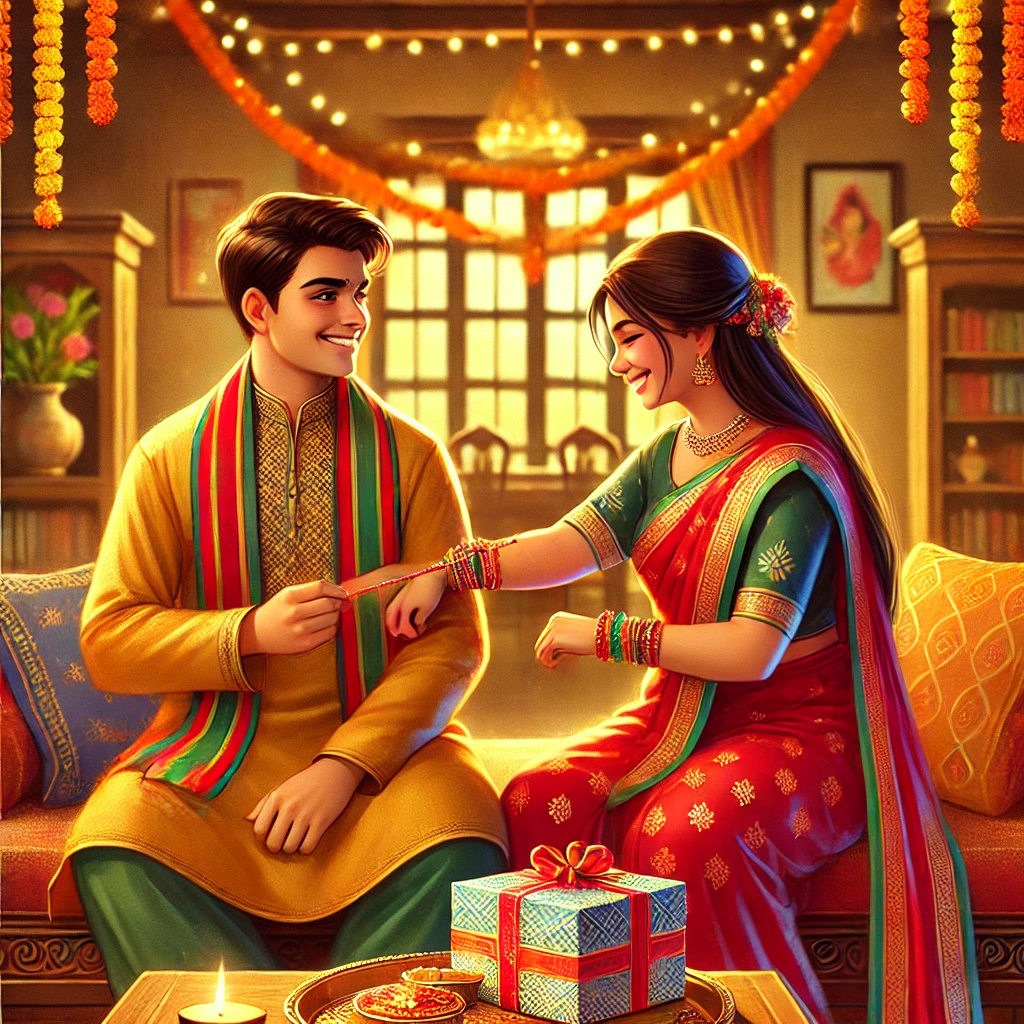
Raksha Bandhan, a traditional Hindu festival, symbolizes the sacred bond of love, protection, and trust between brothers and sisters. Celebrated with great enthusiasm across India and by Indian communities worldwide, it typically falls on the full moon day of the Shravan month, as per the Hindu lunar calendar. The name “Raksha Bandhan” translates to “the bond of protection,” reflecting the festival’s central theme of siblings pledging to care for and safeguard each other.
The Rituals and Celebrations
The highlight of Raksha Bandhan is the ritual of tying a rakhi, a sacred thread, on a brother’s wrist by his sister. This thread is more than just a decorative piece; it represents a sister’s prayer for her brother’s well-being and a brother’s vow to protect her. The ceremony begins with the sister performing an aarti (a ritual involving a lit lamp) for her brother, applying a tilak (a mark made of vermillion or sandalwood paste) on his forehead, and tying the rakhi. In return, the brother presents his sister with gifts as a token of appreciation and affection.
The exchange of sweets is an integral part of the celebration. Families come together to prepare traditional dishes, and siblings often reminisce about childhood memories. Though traditionally celebrated among biological siblings, Raksha Bandhan has evolved to include cousins, close friends, and even neighbors, highlighting the inclusive spirit of the festival.
Historical and Mythological Significance
The origins of Raksha Bandhan can be traced back to ancient mythology and historical anecdotes. One of the earliest references is found in the Mahabharata, where Draupadi ties a strip of her sari around Lord Krishna’s wrist to stop his bleeding after a battle. In return, Krishna vows to protect her, symbolizing the essence of Raksha Bandhan.
Another popular legend involves Rani Karnavati of Mewar, who sent a rakhi to Emperor Humayun, seeking his protection when her kingdom was under threat. Moved by her gesture, Humayun abandoned his military campaign and came to her aid, emphasizing the deep sense of duty associated with this bond.
Modern-Day Relevance
In today’s fast-paced world, Raksha Bandhan serves as a reminder of the enduring bond between siblings, transcending geographical boundaries and busy schedules. The festival has adapted to modern times, with e-rakhis, couriered gifts, and virtual celebrations becoming common among families separated by distance.
Raksha Bandhan also reflects the evolving role of gender and relationships. Many sisters now pledge their protection and support to their brothers, and some families celebrate by tying rakhis to both men and women as a symbol of mutual care. Beyond familial ties, some communities use the festival to promote social harmony, with rakhis being tied to soldiers, police officers, and even trees to emphasize environmental protection.
Conclusion
Raksha Bandhan is more than just a festival; it is a celebration of love, trust, and the unique bond that siblings share. While deeply rooted in tradition, it has grown to encompass broader values of protection, care, and unity. As families come together to celebrate this auspicious day, Raksha Bandhan reminds us of the importance of nurturing relationships and cherishing the connections that bring meaning to our lives.



